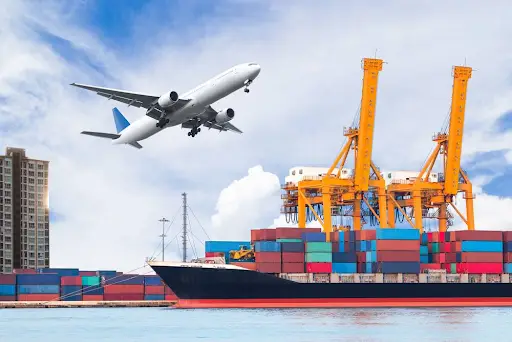Merchant Exporter Under GST
Obtain Status & GST Compliance
Setindiabiz assists traders in obtaining the Merchant Exporter status under GST regarding Notification Nos. 41/2017 IT (R) and 40/2017 CT (R), both dated 23.10.2017. This facilitates access to concessional tax rates and streamlined export processes.
Request a Call Back
Merchant Exporter Status & GST Compliance
A Merchant Exporter is a trader who procures goods from manufacturers to export them without owning a manufacturing unit. Under GST, such exporters can benefit from a concessional tax rate of 0.1% on goods purchased for export, provided they register with an Export Promotion Council or a commodity board of the Ministry of Commerce and specific conditions are met, including exporting the goods within 90 days and adhering to prescribed documentation procedures. Setindiabiz offers assistance in obtaining Merchant Exporter status by leveraging its experience in identifying the most relevant Export Promotion Councils and making an Registration-Cum Membership Certificate (RCMC) or in obtaining recognition from a Commodity Board by the Department of Commerce.
Key benefits & Conditions
- Purchase at 0.1% GST for Export
- RMMC with Export Council
- Export Within 90 Days of Purchase
- GST Compliance Mandatory
- Export Under LUT
- Claim input of 0.1% GST Paid

Benefits of being a merchant exporter under GST
There are two approaches concerning GST for the purchase of goods for export. The first one is that an exporter purchases goods by paying full GST on its purchases, which may range from 5 to 28% and after the export, claim a refund of the Input GST on these purchases. The difficulty in this approach is that a substantial cash flow gets stuck, and taking refunds from the GST office would involve cost and effort. Another approach would be to get registered with an Export Promotion Council or a commodity board of the Ministry of Commerce in terms of Notification Nos. 41/2017 IT (R) and 40/2017 CT (R), and then the export purchases can be made at a concessional rate of gst of just 0.1%. Following are the benefits of being a Merchant Exporter under GST.
Concessional GST Rate
Merchant exporters can purchase goods from registered suppliers at a significantly reduced GST rate of 0.1%. The reduced GST rate applies to inter-state and intra-state supplies, helping the exporter save substantially on the upfront cost of export purchases and significantly improve cash flow.
Export under LUT/Bond
Merchant exporters have a dual benefit. They purchase goods for export at just 0.1% GST. The exporter can export the goods by paying NIL GST after filing the LUT or Bond with the GST. Therefore, the total GST on purchases and exports is negligible.
Input Tax Credit (ITC)
Merchant exporters purchasing goods at concessional rates are also entitled to claim the input GST of 0.1% paid on the goods procured for export, which can be used to set off the outward GST payments. Thus, the exporter gets substantial tax savings.
Ease of Compliance
Despite the conditions and specific procedural requirements to avail of the benefits as a merchant exporter, filing refund claims and departmental follow-ups saves a lot of hassle. The overall process under GST is online and straightforward, thereby easing compliance for the exporters.
Conditions to Avail 0.1% GST on Export Purchases
The Notification Nos. 41/2017 IT(R) and 40/2017 CT(R) provide tax benefits to the exporter wherein the registered supplier can supply (sell) goods to the registered recipient (merchant exporter) at a low rate of GST (0.1%) subject to fulfilment of following conditions are fulfilled:
- The supplier of the goods to the merchant exporter must be registered under GST and supply the goods against a valid tax invoice.
- The merchant exporter must export goods within 90 days from the date of purchase (Date of tax invoice issued by the supplier of the goods)
- The exporter must be registered with an export promotion council and have a valid Registration-Cum Membership Certificate (RCMC).
- The goods purchased at a concessional rate of GST under the GST must move from the supplier location to the Port, Inland Container Deport, Airport or Land Customs Station from where the said goods are to be exported directly.
- The merchant exporter must export the goods under LUT or Bong and indicate the GSTIN of the supplies of goods in the shipping bill or bill of export.
- After export, the merchant exporter needs to furnish proof of export, such as an Export General Manifest (EGM), along with a copy of the shipping bill or bill of export containing details of the GSTIN and tax invoice of the registered supplier to the GST office of such supplier with a copy to the supplier as well.

List of Documents To Obtain the Merchant Exporter
- Questionnaire
- Permanent Account Number (PAN)
- Import Export Code (IEC)
- Certificate of Incorporation or Registration
- MOA, LLP Agreement or Partnership Deed
- CA Certified data on the company's Export of past three years
- Board resolution or power of attorney issued in favor of the signing authority
- GST registration certificate.

Process to Obtain Merchant Exporter Status.
We support obtaining Merchant Exporter Status and ensuring compliance with related regulations.
Step-1 : Register Your Business & Obtain PAN
The merchant exporter must be a recognised form of business, such as a Company, Limited Liability Partnership (LLP), Firm, or Proprietorship. The first step is registering your business and obtaining a PAN Card from the entity's income tax department. Ensure the proposed business activity is import and export.
Step-2 : Open a Current Account in the Bank
After the business registration and PAN card are in place, the next step is to open a current account with any scheduled commercial work in India. The current bank account is necessary for obtaining the Import Export Code (IEC), which is a primary requirement.
Step-3 : Obtain an Import Export Code (IEC)
The next step is to apply online on the DGFT portal to obtain an Import Export Code (IEC). The IEC is a pan-based registration that can be completed within one day. If you need any assistance, we are here to help.
Step-4 : Obtain a Registration-cum-Membership-Certificate (RCMC)
A merchant exporter is not explicitly defined under GST laws; however, as per notification No. 41/2017 IT (R) and 40/2017 CT (R), to avail of the benefit of a concessional rate of 0.1% GST on purchases of the goods to be exported, the exporter must be registered with any of the Export Promotion Councils (EPC) or gets recognition from a Commodity Board recognised by the Department of Commerce.
Procedural Compliances for Supplier and Exporter
Notification Nos 41/2017 IT(R) and 40/2017 CT(R) require certain procedural compliances from both the supplier (manufacturer) and the recipient (exporter) to avail of the concessional rate of GST at % on purchases for export purposes. Non-compliance on the part of the supplier or the exporter would revoke the concessional rate of GST.
| Supplier (Seller) Responsibility | Recipient (Exporter) Responsibility |
|---|---|
|
|
Frequently
Asked
Questions
Frequently Asked Questions
Q1.Who is a merchant exporter under GST?
A merchant exporter is a registered person under GST who engages in trading activities and exports goods or intends to export goods. Merchant exporters procure goods from a manufacturer and export them; they do not manufacture the goods themselves. To get the concessional rate of 0.1% GST on the export purchase, the merchant exporter should register with an Export Promotion Council or a commodity board of the Ministry of Commerce.
Q2.What is the difference between an exporter and a merchant exporter?
The main difference between an exporter and a merchant exporter is their involvement in the production process. A manufacturer exporter makes the goods and exports them, while a merchant exporter buys products from manufacturers and handles the exporting. In short, the manufacturer exporter creates and sells, while the merchant exporter focuses on trading and moving goods to other markets.
Q3.What is the difference between a merchant exporter and a deemed export?
Merchant exports are all about selling goods through intermediaries, allowing businesses to enjoy a low GST rate of just 0.1% on purchases for export. To take advantage of this, the supplier must issue a tax invoice, and the merchant exporter should export the goods within 90 days, while being registered with an Export Promotion Council. On the other hand, deemed exports refer to goods produced in India that stay within the country but still qualify for certain export-like benefits. Although these supplies are subject to taxes, suppliers or recipients can claim refunds. Categories that fall under deemed exports include items supplied against Advance Authorisation, Export Promotion Capital Goods Authorisation, and sales to Export Oriented Units and specific gold supplies from banks or public sector undertakings. In short, while merchant exports focus on using third parties for exports, deemed exports deal with particular supplies within India that benefit from export recognition.
Q4.Is GST applicable on exports?
In India, exports of goods and services are known as zero-rated supplies, meaning they are not subject to GST and allow exporters to claim Input Tax Credit (ITC). You have the option to export goods or provide services to an overseas recipient under a bond, also known as a letter of undertaking (LUT), without paying any GST. Alternatively, you can pay the IGST upfront at the time of export and later seek a refund. Therefore, though GST is applicable to exports, the rate of GST is NIL.
Q5.Are exports zero rated in GST?
Yes, exports are zero-rated supply under the GST, Provided all other conditions are satisfied.
Q6.How to become a merchant exporter?
To become a merchant exporter, you must first be registered under GST. A registered supplier can supply goods to a merchant exporter at a low rate of GST (0.1%) if the following conditions are fulfilled: the registered recipient is registered with an Export Promotion Council, the goods are supplied on a tax invoice, the goods are exported within 90 days from the date of the invoice, and the GSTIN of the registered supplier and the tax invoice number are indicated on the shipping bill or bill of export. The registered supplier must also move the goods directly to the port or a registered warehouse.
Q7.What are the three types of exporters?
Under GST Law the exporter can be divided into three categories:
- Manufacturer Exporter: This refers to a person who exports goods manufactured by them or intends to export such goods.
- Merchant Exporter: This refers to a person engaged in trading activity and exporting or intending to export goods. Merchant exporters can obtain goods from a manufacturer at a concessional GST rate of 0.1% for export.
- Deemed Exporter: This refers to a person who supplies goods that do not leave India but are notified as deemed exports under section 147 of the CGST Act. These goods are manufactured in India and payment for them is received either in Indian rupees or in convertible foreign exchange.
Q8.What is the GST rate for merchant exporters?
The GST rate for a registered supplier supplying goods to a merchant exporter is 0.1%; the concessional rate is available to suppliers who meet certain conditions
Q9.Is RCMC mandatory for merchant exporters?
The RCMC (Registration-cum-Membership Certificate) of any export promotion council or recognition of any commodity board is mandatory for merchant exporters to avail themselves of the benefit of a concessional rate of GST @0.1% on export purchases.
Q10.What are the benefits of being a merchant exporter under GST?
Yes, merchant exporters enjoy several benefits under the GST regime. These benefits stem from the zero-rated nature of exports and specific provisions designed to facilitate merchant export activities:
- Concessional GST Rate of 0.1%
- Simplified Refund Process
- Zero-Rated Exports.
To access the above-listed benefits, merchant exporters must be registered under GST and meet certain conditions, including registration with an Export Promotion Council.